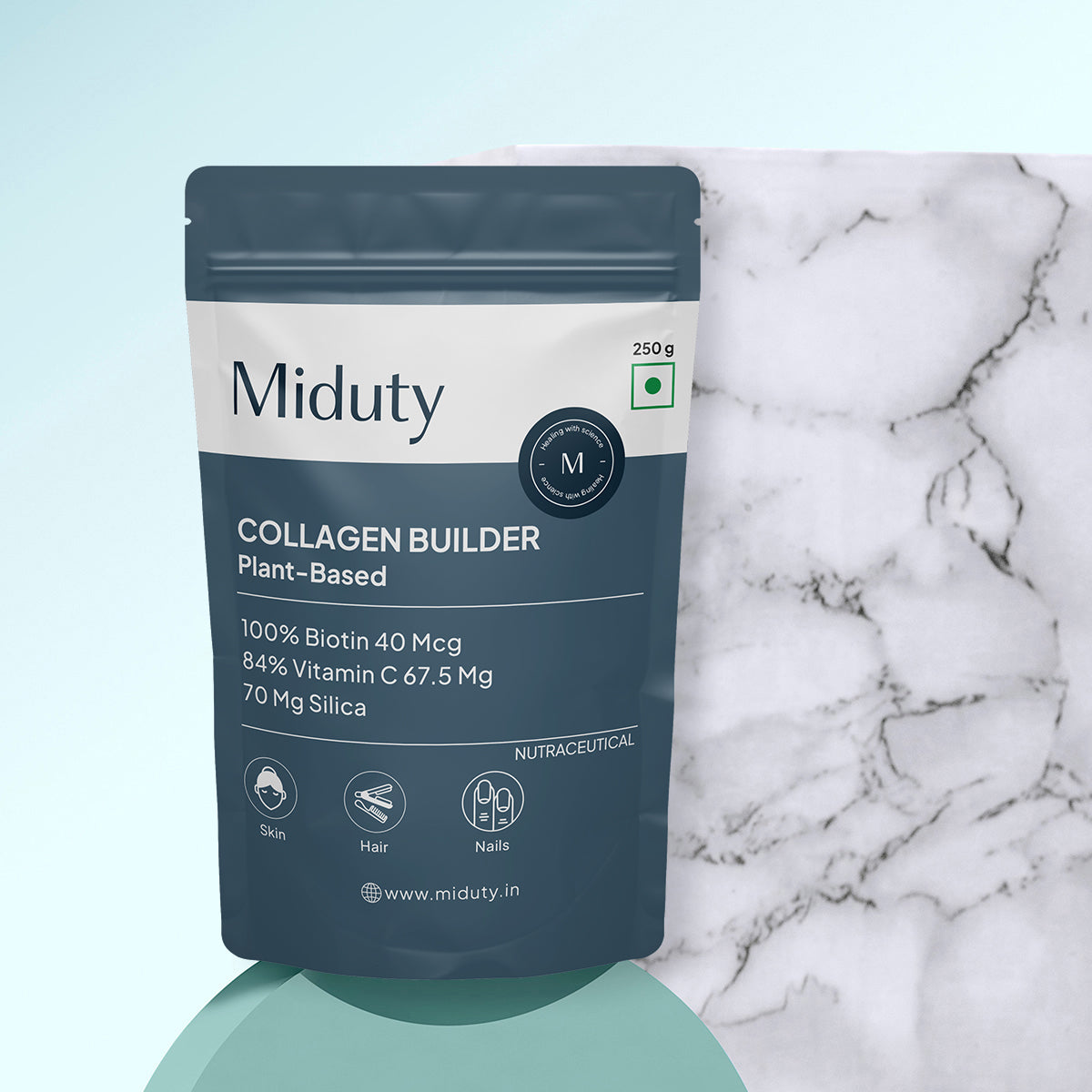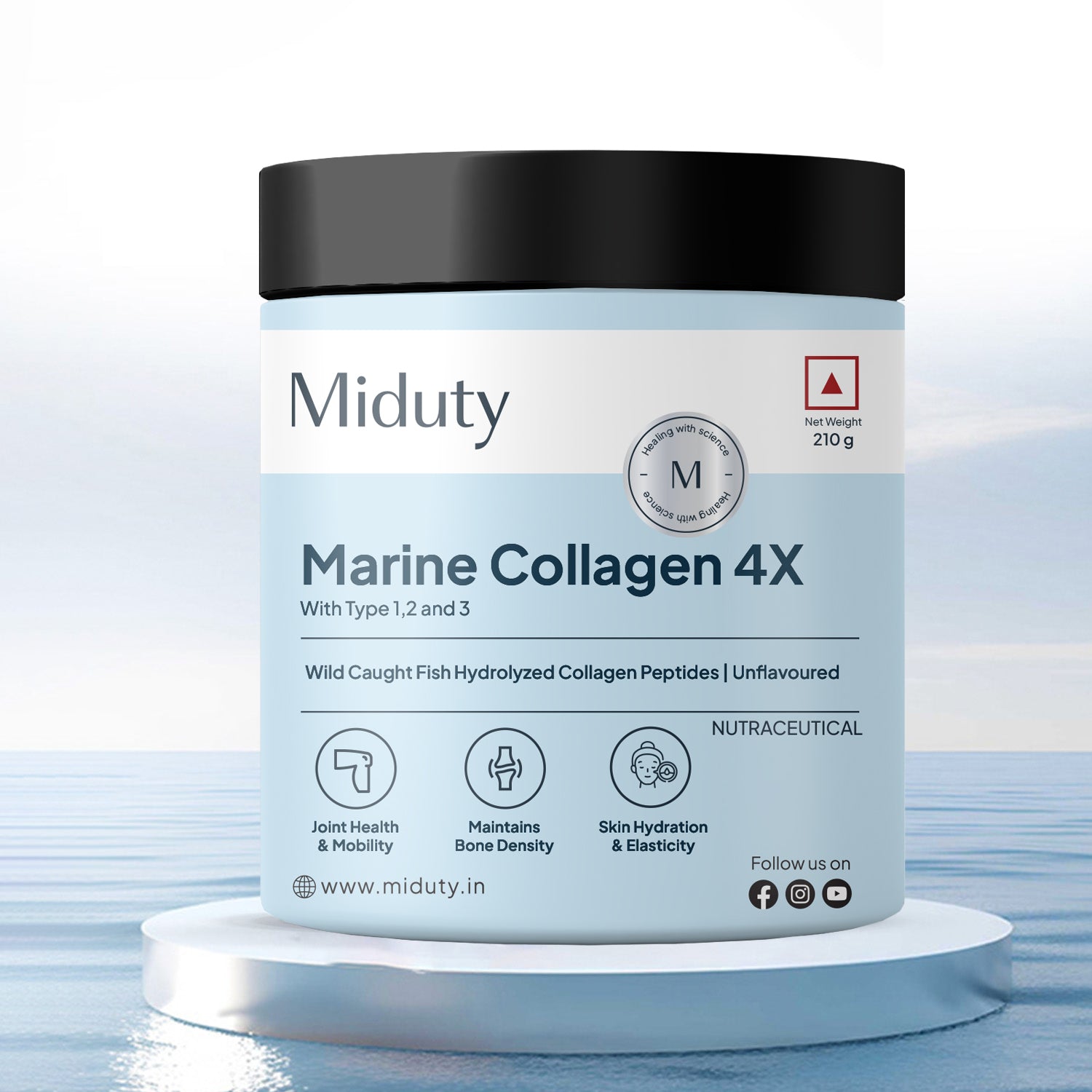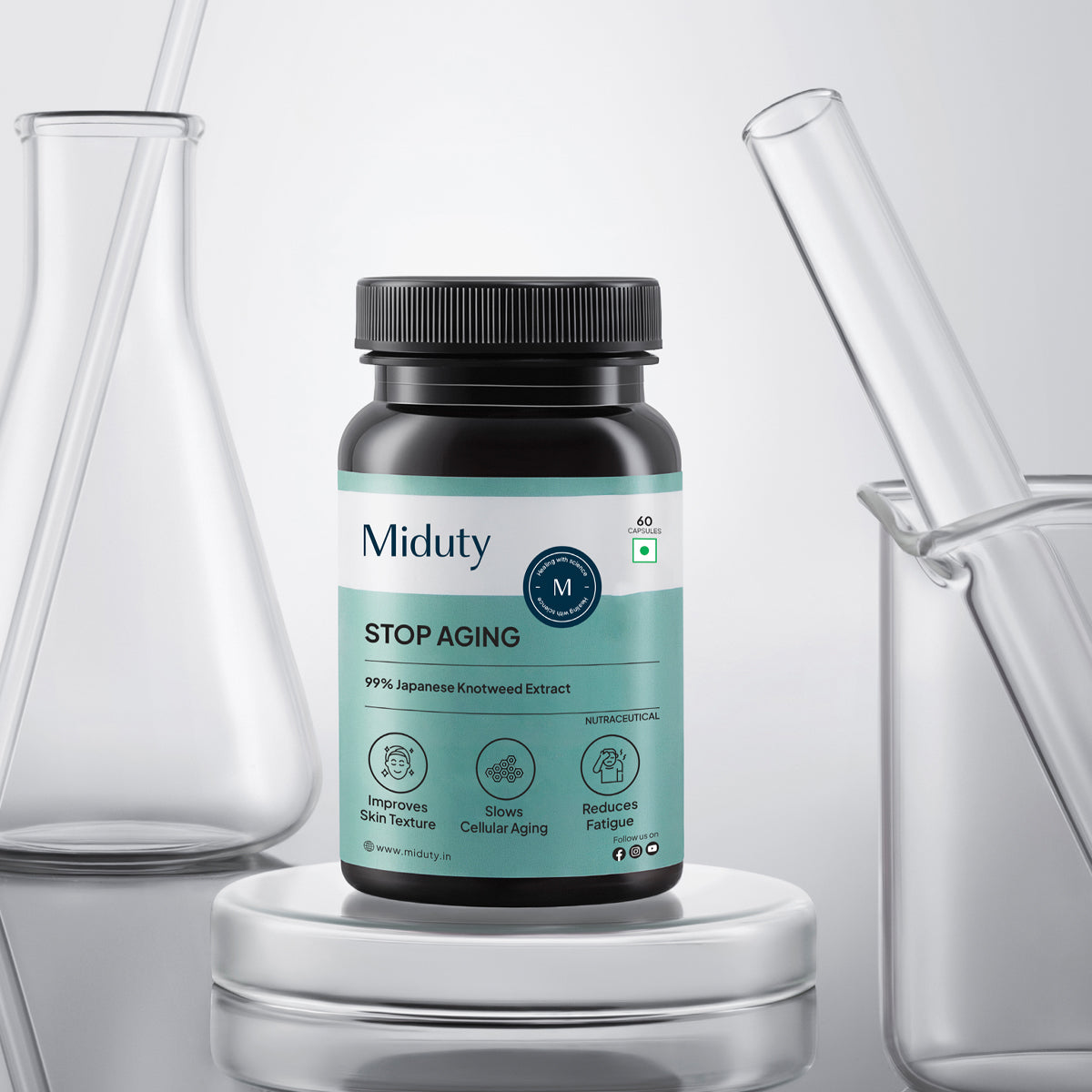
How to Increase Collagen in Skin
Who would not desire smooth and healthy skin?
Though we all know that protein is important for our skin health, but there is more to it. Our worry and stress also plays an important role as it reflects on our skin, causing us to feel even more drained and faded.
Most likely, you've heard of "collagen" if you've recently been casually scrolling through Instagram skincare posts. More people are becoming aware of the trendy term. The mysterious substance known as collagen is said to have the ability to produce perfect skin and hair.
If you desire to know how to increase collagen in skin then you are at the right place.
In this blog, I am going to discuss Collagen, its types, and ways to boost the collagen in your skin.
Before jumping to how to increase collagen in skin, let us first discuss what collagen is and why is it important?
What is Collagen?
Collagen is your body's most common protein. It makes up about 30% of total protein. Your skin, muscles, bones, tendons, ligaments, and other connective tissues are all mostly made of collagen. It's also found in your tissues, blood vessels, and the lining of your intestine.
What Does Collagen Do?
The primary function of collagen is to give structure, strength, and support throughout the body.
Other Collagen's specialized functions include:
- Promoting the growth of new skin cells
- Playing a function in the replacement of dead skin cells.
- Giving organs a protective coating.
- Giving your skin structure, strength, and flexibility.
- Supporting the clotting of your blood.
- Building muscles and joints
Signs of Collagen Deficiency
Signs of aging are significantly associated with collagen deficiency, although they can also be seen in young, healthy people. The following are common symptoms that your body is weak in collagen:
- Wrinkles
- Skin sagging
- Skin that is dry and dull
- Joint Pain
- Inability to build or maintain muscle mass
- Gastrointestinal issues or Stomach issues
Fortunately, whether your collagen shortage affects your skin, joints, or both, increasing collagen production is simple.
What Are the Types of Collagen?
There are 28 different forms of collagen, but the most common types of collagen used in supplements are Type I, Type II, Type III, Type V, and Type X. These collagen kinds are important to the body and come in three different forms. Hydrolyzed Collagen, Gelatin, and Undenatured Type II Collagen
Because it is the most broken-down form of protein, hydrolyzed collagen is thought to be the easiest for the body to use.
The most basic type of collagen is gelatin collagen, which is formed by boiling collagen.
The least broken-down form of collagen, Undenatured Type II Collagen, is extremely challenging for the body to break down.
Can Collagen Supplements Benefit Women?
Adding collagen supplements to a healthy lifestyle may assist women's health in specific areas, such as keeping skin moisturised and smooth. It may also help to prevent bone and joint damage in women, such as osteoporosis and osteoarthritis which are common during premenopausal or menopausal phase. Collagen supplements may also assist young women during pregnancy and athletic activity.
Some researchers believe that taking collagen supplements before and after pregnancy may benefit a woman's skin since hormones weaken collagen fibres during pregnancy, potentially increasing loose skin and stretch marks. [1]
5 Ways to Boost Collagen in Your Skin
1. Consume Foods Rich in Vitamin C

According to one study, hyaluronic acid may help boost the body's production of collagen. [2] Hyaluronic acid is created by the body naturally, but as we age, the amount produced decreases. When diets strong in vitamin C and amino acids are consumed, the body produces more hyaluronic acid, which is essential for healthy skin, as well as collagen.
Amla, red peppers, kale, broccoli, Brussels sprouts, strawberries, and other foods are all high in vitamin C.
2. Omega-3 Fatty Acid

Omega 3 fatty acids are essential nutrients for good health in general. Omega 3 is needed on a regular basis and must be obtained from food and supplements because your body cannot produce them on its own.
Omega 3 fatty acids, which may be found in foods like flax seeds, salmon, and Antarctic Krill Oil, are crucial for keeping healthy skin, nails, and hair. Omega 3 fatty acids possess anti-inflammatory and antioxidant effects. As a result, it restores free radical damage to skin cells, which causes collagen to be destroyed. Omega-3 fatty acids have been found to help prevent UV-induced damage and wrinkle formation via collagen production. [4]
Therefore, I have made Antarctica Krill Oil which not only has omega 3 fatty acid but also contains an antioxidant named astaxanthin to make it more powerful, and is 100X better than any other supplement in the market.
3. Use Sunscreen
While sunscreen might not increase your collagen levels, doing this will lower your risk of developing other ageing and sun damage symptoms and preserve the collagen your body already has created from damage. [5] The key is SPF!
And it should contain active zinc oxide, active titanium oxide and inactive iron oxide. (Make sure these are not present as nanoparticles). They all help in blocking sun rays.
Astaxanthin present in my Krill Oil helps in the activation of internal sunscreen which helps with pigmentation.
4. Consume Foods with Lysine
L-lysine, often known as lysine, is a vital amino acid, which means that although it is required for human health, the body cannot produce it. [3] Lysine can be obtained through food or supplements. Amino acids like lysine make up proteins.
Foods high in protein and a good source of lysine, such as:
- Meat
- Fish
- Eggs
- Lentils
5. Take a Collagen Supplement
The human body naturally produces collagen, but as we get older, this process begins to slow down. Collagen is mostly found in the skin and bones of animals, as opposed to other skin-beneficial vitamins like vitamins A and C, which are present in a wide variety of foods. You probably aren't getting enough collagen from your diet alone unless you're known to snack on some chicken tendons.
However, if you’re a vegetarian and need a collagen supplement. You can take Organic Plant Based Collagen which contains Acai berry, bamboo shoots, sea buckthorn, rose petals, and acerola cherry which sets it apart from the competition and raises the level of the product's quality. Biotin and vitamin C are included, and there is no added sugar.
And above all it is 100% natural with no added preservatives.
References
| Sr. No. | Reference Links |
| 1. | Skin collagen through the lifestages: importance for skin health and beauty |
| 2. | Ingested hyaluronan moisturizes dry skin |
| 3. | [Lysine and collagen] |
| 4. | |
| 5. |













